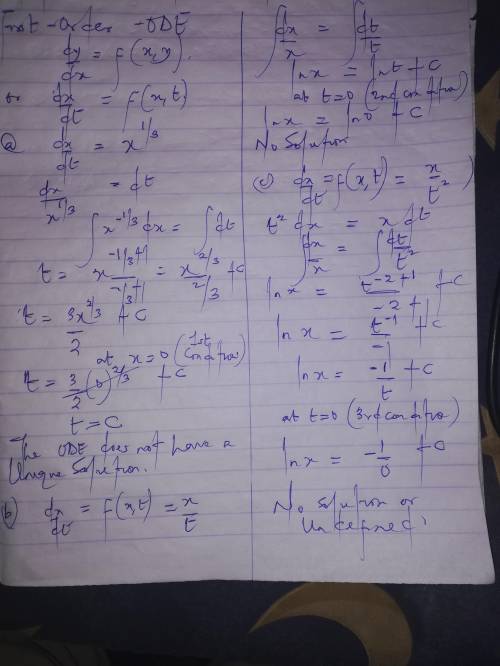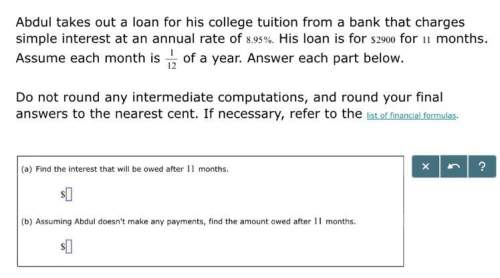
Mathematics, 25.01.2020 05:31 cody4976
First-order differential equations need not have unique solutions satisfying a given initial condition.
a)prove that there are infinitely many different solutions of the differential equations x- = x^1/3 satisfying x(0) = 0.
b)discuss the corresponding situation that occurs for x- = x/t, x(0) = x_0.
c)discuss the situation that occurs for x- = x/t^2, x(0) = 0.

Answers: 2


Another question on Mathematics

Mathematics, 21.06.2019 16:30
Answer the following for 896.31 cm= km 100cm = 1m 1000m = 1km a) 0.0089631 b) 0.0089631 c) 8.9631 d) 89.631
Answers: 1

Mathematics, 21.06.2019 17:30
1mile equals approximately 1.6 kilometers. which best approximates the number of miles in 6 kilometers?
Answers: 1

Mathematics, 21.06.2019 18:00
If f(x) = 4x – 3 and g(x) = 8x + 2, find each function value a.f[g(3)] b.g[f(5)] c.g{f[g(-4)]}
Answers: 3

You know the right answer?
First-order differential equations need not have unique solutions satisfying a given initial conditi...
Questions

English, 15.01.2021 07:00


Mathematics, 15.01.2021 07:00

Chemistry, 15.01.2021 07:00



Mathematics, 15.01.2021 07:00

Mathematics, 15.01.2021 07:00

History, 15.01.2021 07:00




Chemistry, 15.01.2021 07:00


Chemistry, 15.01.2021 07:00

Mathematics, 15.01.2021 07:00

Mathematics, 15.01.2021 07:00

Spanish, 15.01.2021 07:00

Biology, 15.01.2021 07:00

History, 15.01.2021 07:00





